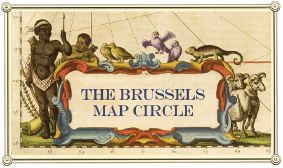Michael Timothy Jones
23 March 1960 - 18 January 2021
Michael T. Jones, an influential computer-science pioneer who, among other achievements, was a creator of Google Earth, died at his home in Sunnyvale, CA on 18 January 2021. He was 60 years old and had been undergoing cancer treatment at the City of Hope.
Michael was born in San Diego, California, and spent his early childhood there and in Vista and Fresno, as the son of Glenn and Dorothy Jones. When Michael was in junior high school, his family moved to Greensboro, North Carolina. He was so advanced in his aptitude and achievement that he began programming computers when he was in fourth grade, worked as a teaching assistant at North Carolina A&T University while in high school, and finished his formal education and launched his own high-tech business after one year at North Carolina State University. In 1980, in North Carolina, he married June Young, who survives him and with whom he recently celebrated his 40th wedding anniversary.
Through his 20s and early 30s Michael Jones founded or worked for a number of computer companies in North Carolina. In his early 30s he moved to California and was an engineer and manager for the innovative company Silicon Graphics. Before age 40, he was the chairman, CEO, and president of Intrinsic Graphics, from which he spun out a digital mapping company called Keyhole, whose maps were extensively used by CNN and other outlets in their reporting during the Iraq war. In 2004, Google acquired Keyhole, and its technology became what is now known as Google Earth. It was also the basis for the countless Google mapping tools used by more than a billion people worldwide every day.
At Google, Michael served first as Chief Technology Officer for Google's range of mapping products, and then as Chief Technology Advocate for the company as a whole. In that role he became well-known around the world for his leadership and advocacy in the many areas of his passionate expertise. These spanned a very broad range: from high-definition photography and boat design; to ocean mapping and conservation; to architecture, the social implications of technology, and a deep knowledge of history.
In June 2020, Michael Jones was awarded the Patron's Medal, the highest honor of the Royal Geographical Society, in London. "Everyone is inventive," he said, in an interview on receiving the award. "You need only ignore limits and ask yourself 'how should it be?' "
"Inventors are just laborers toiling to make things be as we feel they should," he said. "For me, a key trait is passion for ideas, loving them as parents love children and grandchildren: embracing them, sacrificing for them, excusing the worst and believing the best of them, being patient and supportive with an enduring love as they mature. Like children, they take time to develop into the brightness of their promise. I have been this way all my life."
Michael's curiosity, intellect, and achievement were exceeded only by his generosity and capacity to love. His work has influenced billions of people who might never know his name but are touched every day by his ideas. He is mourned by all fortunate enough to have known him.
From MercuryNews.com. Retrieved on 29 January 2021.
